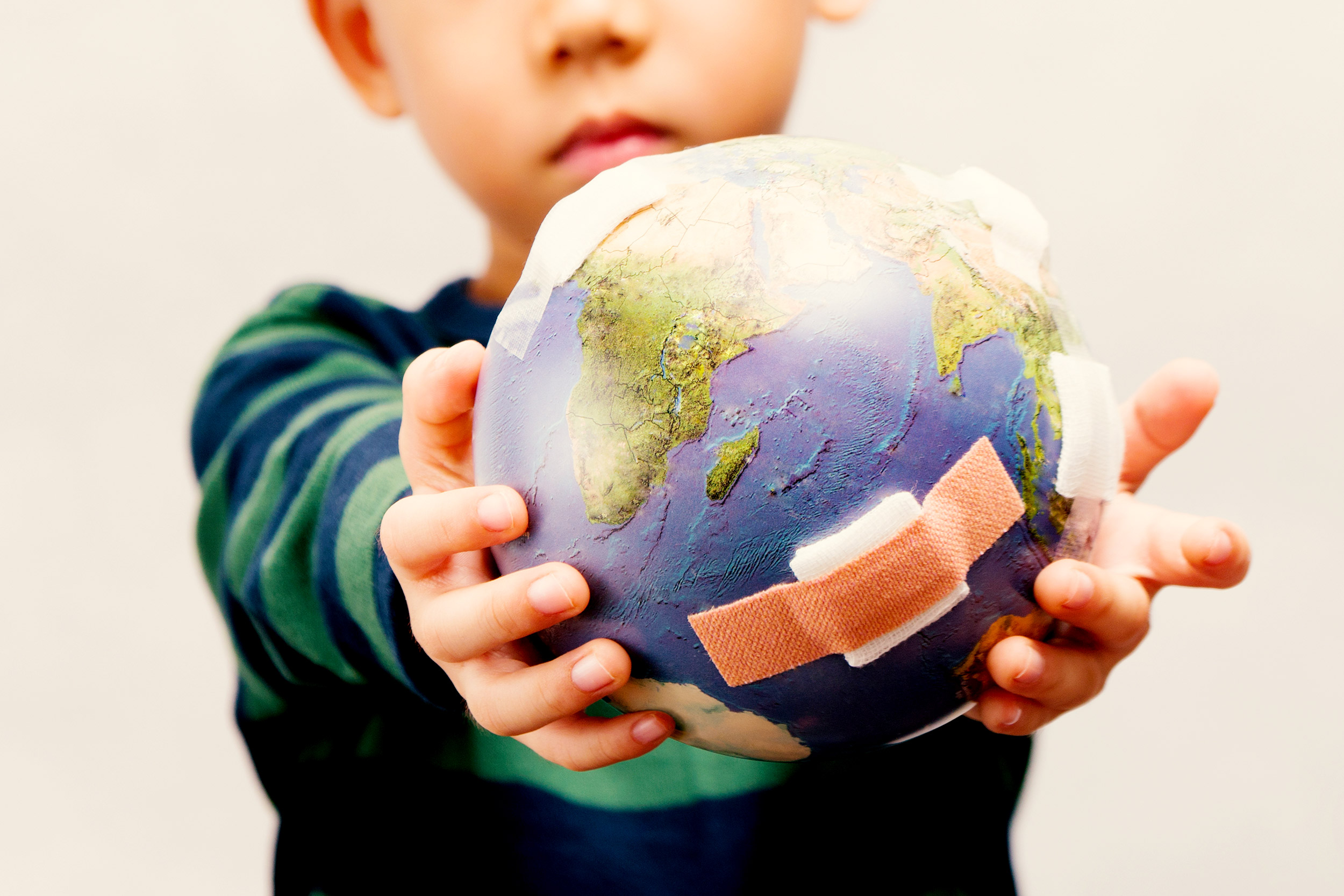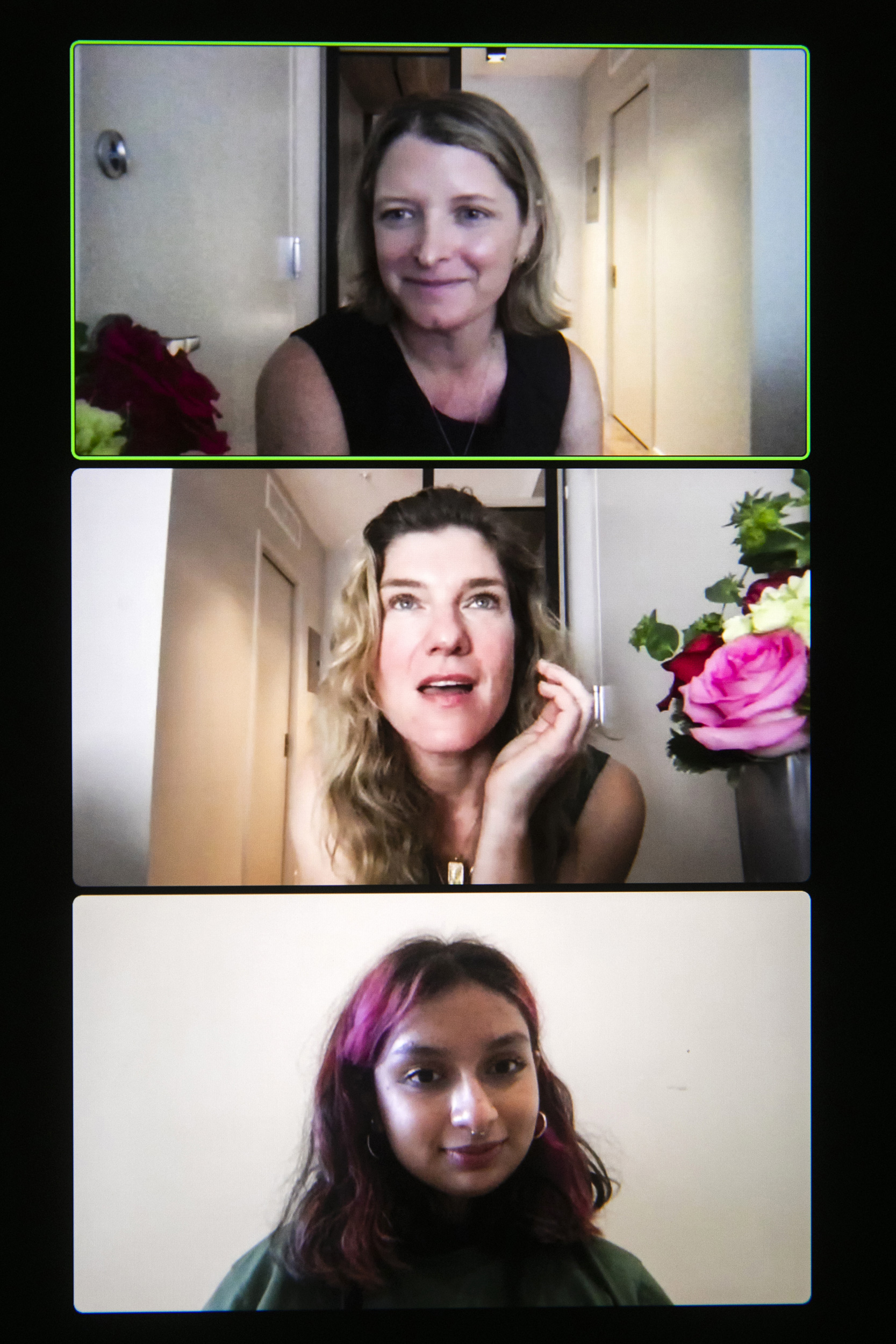
Talking with kids about existential threat of climate change
It may ignite fears for children and guilt for parents, but key is focusing on solutions, experts at HGSE webinar say
Climate change is an existential threat, and it is younger generations and those still to come who will more fully bear the brunt of a warming planet. It can be a scary subject to discuss for children who fear for their safety and a fraught one for parents who feel guilty for failing to have done more sooner to head it off.
Discussing different strategies for opening these challenging discussions, as well as what an activated younger generation can do, was the subject of “How We Talk About Climate Change with Kids,” part of the Education Now webinar series presented by Harvard Graduate School of Education (HGSE) on March 8.
Climate change requires “a whole-society approach,” began Laura Schifter, the webinar host. Indeed, a recent survey at the Aspen Institute suggests that concern for children may unify more Americans to confront the climate crisis, said Schifter, a lecturer on education at HGSE and a senior fellow at the Aspen Institute’s “This Is Planet Ed.”
“Climate change is a personal issue,” said Schifter, noting that her three daughters have increased her awareness of the issue. “It’s going to impact us as humans, and it’s going to impact the things that we care about.”

However, many parents still shy away from discussing the pressing topic. “Four out of five parents think it is important, but only half have talked about it,” explained author and journalist Anya Kamenetz. She blamed anxiety and guilt for what she called “this intergenerational silence.”
Azucena “Zuzu” Qadeer, a junior at New York City’s Beacon High School, views the problem as rooted in parents’ misguided desire to protect their children from harsh truths, a desire that she believes has been compounded by the COVID pandemic. This parental instinct, she stressed, ignores the real good that can come from open communication. “People think it is all bad, but there’s a lot of hope and a lot of actions we can take to create more hope,” said Qadeer, an organizer with TREEAge, a coalition of youth leaders and activists fighting for environmental justice.
“It is scary,” acknowledged Kamenetz as the conversation progressed to strategies for having these hard talks. She suggested that parents need to be willing to cope with strong emotions, including fear, “sharing them as they come up, and talking about actions we can take,” she said. “Put it in a context that’s meaningful for kids.”
Families almost anywhere can use examples of changing or extreme weather to explain climate change. Even when children have not experienced superstorms, fires, or flooding, observable changes may offer teachable moments. For example, Kamenetz said, with younger children parents can open a discussion by asking: “Why didn’t we have snow this winter?”
“Four out of five parents think [climate change] is important, but only half have talked about it.”
Anya Kamenetz, journalist
With older children, it can be important to acknowledge that parents don’t have all the answers. “Respond to their questions and their anxieties and say, ‘Let’s look it up together,’” she said. No matter what the child’s age, she stressed, “It’s really important that this be connected to solutions and helping kids know they can be part of that solution.”
Knowing that there are actions that can be taken is essential, said Qadeer. She confessed to feeling hopeless “for a very long time, and it was depressing.” Ultimately, what pulled her out of her depression was working in her community and with TREEAge. “In terms of empowering young people, show them that they are part of a community and that they can make change in their community,” she advised.
For that, she said, young people need parental, educator, and caregiver support. “Climate politics can be a very ageist environment,” said the high school student. The day of the webinar, Qadeer was in Albany with 150 fellow students, lobbying state legislators. “We really are doing the hard work,” she said. However, she noted, students’ youth can work against them. “They know we can’t vote,” she said. “What we need from parents and caregivers is support. We need to hear that they care and that they will support bills” that combat climate change. “That they want actual action taken. We don’t have enough power to get legislators over the edge.”
Ultimately, Kamenetz said, communication and a positive outlook are key. She supports the mindset that says: “I’m doing something every day to be part of the solution. I’m not in charge of the outcome, but I’m doing what I can.”




